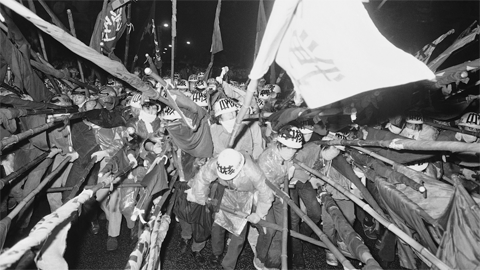Japan's May 1968 travels to the UAB

On 22 February, the Faculty of Translation and Interpreting offered a session on the cultural impact of May '68 in Japan, with conferences by six experts and a round table discussion.
15/02/2019
This year marks the 50th anniversary of the most important student revolts in the history of Japan and one of the most important of the world.
Lecture Room 4 of the Faculty of Translation and Interpreting hosted an international session on 22 February organised by the research group GREGAL as part of the Japan-Korea-Catalunya Cultural Circulation project of the Department of Translation and Interpreting and East Asian Studies, entitled "The Cultural Impact of Japan's May '68".
May 1968 was a time of revolts at a global level which quickly spread through different national contexts. The French May '68 is well known, but there are other revolts which were not as known, such as those taking place on the Berkeley university campus in the United States or, even less, those taking place on the university campuses of Japan, with such emblematic events such as the eviction of students of Tokyo University in 1969. This year marks the 50th anniversary of these events, unanimously considered to be the most important student revolution in the history of Japan and one of the most important of the world.
The research session thus aimed to shed light on the historic events of Japan's May 1968 and at the same time explored the cultural effects it has had, clearly visible in the social criticism, a collective nostalgia, the identity distress seen in today's Japan. Some of the issues the session focused on were the analysis of violence as a political tool, the problem of subjectivity, sexual revolution, and humour as a form of dissent.
Blai Guarné, coordinator of the bachelor's degree in East Asian Studies; Amelia Sáiz, coordinator of the PhD programme in Translation and Intercultural Studies; and Ferran de Vargas, member of the GREGAL research group opened the session. Conferences were then offered by experts Chris Perkins from the University of Edinburgh; Ferran de Vargas from the UAB; Marcos Centeno from the University of London; Manuel Garin from the Pompeu Fabra University; Lorenzo Torres from the University Rey Juan Carlos; and Kenta Kato from the Waseda University. The session ended with a round table discussion moderated by de Vargas.
More information:
Japan's May 1968 Programme